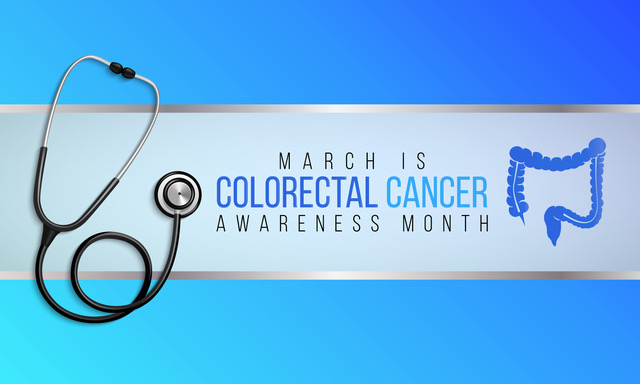March is colon cancer awareness month, so it is a fitting time to provide important information about colon cancer screening. Colon cancer is currently the second leading cause of cancer in women and the third leading cause of cancer in men in the United States. It is unfortunate that so many people should be impacted by such a preventable disease. There are several ways to screen for colon cancer, but I would like to discuss two primary methods of doing so that garner a lot of attention; colonoscopy versus other non-invasive screening tests, namely Cologuard.
Colonoscopy remains a top-tier test for colon cancer screening and is considered the “gold standard” by many. During a colonoscopy, the patient is comfortably sedated, and a gastroenterologist passes a flexible scope to the end of the colon and carefully examines it on the way out. One of the primary benefits of colonoscopy is the ability to not only _detect _pre-cancerous colon polyps but also to _prevent _colon cancer by removing these polyps during the exam. The timing of the next colonoscopy is then determined by the size, number, and type of polyp removed, if any.
Non-invasive testing remains an option as well. There are, however, significant shortcomings associated with these tests. First, and perhaps most importantly, is their sensitivity. Not all polyps are created equal; those with “advanced features” (i.e., larger size, higher number, and villous or serrated histology when examined by a pathologist) pose a greater risk of progressing to colon cancer if not removed. Cologuard, which is arguably the best-known non-invasive test, only has a sensitivity of 42.4% for these types of advanced polyps. Put differently, it can _miss _up to 57% of advanced polyps. Once such polyps come to our attention, they may have become too large to remove endoscopically or may have already progressed to colon cancer. Colonoscopy, on the other hand, carries a sensitivity of up to 95% for advanced polyps, which can be removed when detected as described above. The sensitivity for non-advanced (but still pre-cancerous) polyps are even lower for Cologuard at 17%, whereas it remains 85% for colonoscopy.
Another significant shortcoming is the fact that a _positive _Cologuard then requires undergoing a “diagnostic” colonoscopy. Unfortunately, most insurance companies will only pay for one “screening” test. Therefore, if a “screening” Cologuard returns positive, the subsequent colonoscopy is then considered a “diagnostic” test, for which patients often have to pay out-of-pocket, much to the chagrin of the patient and the provider. On the other hand, the reported false-positive rate (i.e., the test returns positive but no polyps are found on subsequent colonoscopy) for Cologuard is 12%, which means that over 1 in 10 patients who have a positive test may be left paying needlessly out-of-pocket for a colonoscopy that could have been performed (and covered) in the first place.
Last but certainly not least is the fact that Cologuard is often being performed inappropriately on certain individuals. Cologuard is approved by the FDA for individuals “who are typical average-risk for colorectal cancer,” which _does not _include people who have a family history of colon cancer or personal history of colon polyps (i.e., those who are at high risk for colon cancer). In fact, the approval statement specifies that “Cologuard is not a replacement for diagnostic colonoscopy or surveillance colonoscopy in high-risk individuals.” Unfortunately, it has been our experience that Cologuard is all-too-often performed inappropriately on these individuals.
In summary, colon cancer is a deadly, yet in many cases preventable, disease. There is growing evidence that colon cancer is occurring at earlier ages than previously noted. On October 27, 2020, the U.S. Preventative Services Task Force issued draft recommendations to begin colon cancer screenings at age 45. The change in age would bring the Task’s Force recommendations in line with those of the American Cancer society. Fortunately, colonoscopy is a safe and effective method to screen for colon cancer. Therefore, if you are over this age and have never undergone screening, or if you are past due according to findings from your previous colonoscopy, we encourage you to contact your gastroenterologist as soon as possible. Please join us in our fight against colon cancer.

